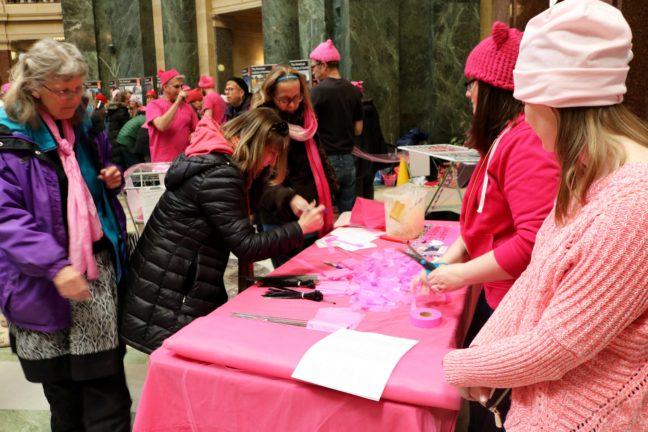November 2016 brought historic change to the American political landscape. Hillary Clinton became the first woman to receive a presidential nomination from a major political party and her campaign was poised to start a force of political efficacy in women nationwide. Surprisingly, she did it by losing.
Large movements comprised of female activists can be seen as direct effects of the election and subsequent inauguration of President Donald Trump. The Women’s March, #MeToo and #TimesUp movements are perfect examples of how the political landscape has inspired the mobilization of women in activist circles. Though Clinton’s campaign was not victorious, her work opened up a space that allows women not only to contribute to the conversation but to facilitate it.
Though a man still presides over the Oval Office, women’s presence in government is growing, albeit slowly. Statistically, women win their races as much as men. But women simply run for office less. It is more common to find women behind the scenes, working as communications directors or even campaign managers — and that is still a trend that is growing from virtually nothing.
Kelly Dittmer, a political scientist at Rutgers University, recalled removing data on female campaign consultants from her 2010 book because the numbers were so small they weren’t statistically significant. In contrast, the Democratic Congressional Campaign Committee reported 40 percent of the campaign managers for Democratic congressional candidates are women.
Rebecca Dallet wins Supreme Court chair by significant margin, historically large voter turnout
But whether a woman directs the campaign, or is the face of the race, the age-old issue of sexism is still the main deterrent of women from the political sphere. Erin Forrest, the director of Emerge Wisconsin, an organization that trains women to run for office, said women “tend to have a harder time breaking through and there is still some sexism there. There is some really deeply held, not questioned beliefs … about what leadership is and what leadership looks like.” Emerge Wisconsin plays a large part in creating the momentum of women running campaigns and running for office, as 74 percent of the women Emerge trained won their races this past Tuesday.
The momentum can even be felt in Wisconsin, as a consequence of last week’s election. Rebecca Dallet’s Supreme Court victory makes Wisconsin the state with the highest percentage of women making up a state Supreme Court.
This is without a doubt a victory, but lower courts and the state legislature are still full of gender disparity. Twenty-five percent of the Wisconsin state legislature is female and only 19 percent of circuit court judges are women. Small victories must be celebrated, but they cannot overshadow the overall fight women have been working towards not just since Clinton’s defeat, but since Susan B. Anthony and Elizabeth Cady Stanton pioneering women’s suffrage ages ago.
At its core, America is a representative democracy. Its governing body should be representative of their constituents, including women of all races, ethnicities and identities.
Political advertising which targets child victims is not informative, it’s outrageous
Many call Dallet’s Supreme Court victory an indicator of a “blue wave,” or a slew of Democrats winning elections and flipping power in various legislatures and offices across the country. But calling this phenomenon a wave may be toxic in its own right, as Forrester said, “the whole concept of a wave makes it sound like it’s something that happens to us, but it doesn’t happen without a tremendous amount of work.”
Women have been working towards these small victories for some time now, but there is still much to be done. We cannot lose sight. A blue wave may be coming, but it seems a pink wave may not be far behind.
Abigail Steinberg ([email protected]) is a freshman majoring in political science and intending to major in journalism.















